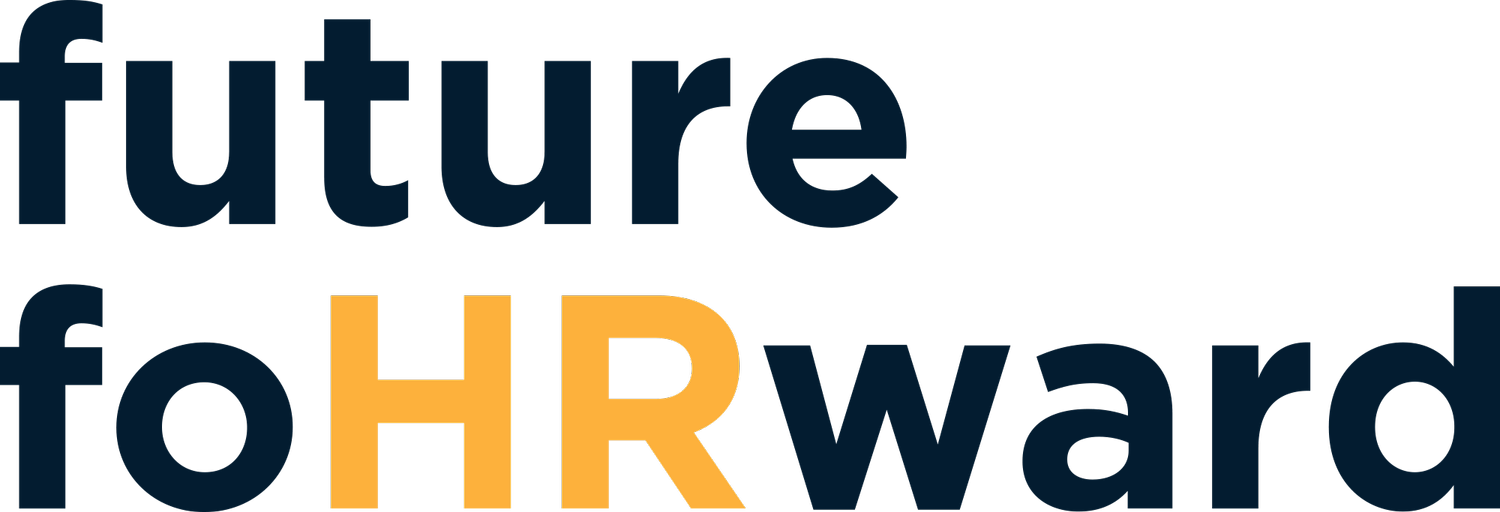the foHRsight podcast: AI in HR: From Hype to Impact
In this foHRsight podcast discussion, Mark Edgar and Naomi Titleman explore insights from their Q4 2024 white paper entitled 'From Hype to Impact: How HR Can Harness the Power of AI'. As organizations grapple with doing more with less, AI emerges as both a challenge and an opportunity for HR professionals to revolutionize their practice. "We have a bunch of things that are being talked about, but the translation of that into the workforce is something that's certainly a lot more work to be done," Mark observes, setting the stage for a practical exploration of AI's potential in HR.
The AI Opportunity in HR
"I think about the challenges we have as HR as a function... doing more with less, expecting to have all the answers, that disconnect sometimes between our leaders wanting us to be strategic, but we have so much to get done on the day-to-day," Naomi reflects. This tension points to AI's transformative potential in HR - not just as a productivity tool, but as a catalyst for strategic evolution.
The opportunity is particularly compelling when we consider the current state: according to a 2024 BCG stat referenced in the discussion, only 28% of people have received any sort of training relating to AI. This gap represents both a challenge and an opportunity for HR leaders to shape the future of work.
Seven Critical Roles for HR Leaders
Moving from opportunity to action, the conversation identified seven essential roles that HR leaders must embrace in the AI era. "HR has a particularly unique role just because of the nature of the role and the purview they have and the opportunity they have to influence a pretty broad agenda here," Mark notes.
The seven roles include:
1. Trust Builder: Creating confidence in AI adoption
2. Change Leader: Guiding organizational transformation
3. Productivity Advocate: Championing efficiency improvements
4. Policy Maker: Establishing AI governance frameworks
5. Agile Innovator: Demonstrating adaptive implementation
6. Technology Trainer: Facilitating skill development
7. Human Plus Conductor: Orchestrating human-AI augmentation
"It's not like we do AI in one section and then we do all the other stuff in another section," Naomi emphasizes. "It's really that integrative thinking that happens."
The "Wouldn't It Be Awesome If" Approach
Building on these roles, one powerful framework introduced is the concept of "wouldn't it be awesome if." As Naomi explains, "The technology constraint is not really there anymore... We have technology to help us support that outcome, it's just all the stuff, including massive amounts of change management that needs to happen."
This approach encourages HR leaders to:
- Envision ideal solutions without technical constraints
- Focus on value creation opportunities
- Think creatively about process transformation
- Challenge traditional approaches
Practical Applications in HR
The discussion highlighted three key areas where AI is making immediate impact:
1. Talent Acquisition: Automating routine tasks to allow recruiters to focus on relationship building and cultural fit
2. Learning & Development: Creating personalized, on-demand learning experiences
3. HR Operations: Streamlining administrative tasks and improving service delivery
"Think about all the possibilities of AI going and finding things in three seconds versus us going and spinning our wheels trying to find the latest and greatest on something," Naomi notes, highlighting the practical efficiency gains.
Building Your AI Strategy
The conversation outlined three fundamental steps for developing an effective AI strategy:
1. Develop a Philosophy: Create a clear vision while engaging stakeholders
2. Identify Opportunities: Focus on priority areas and build trust through transparency
3. Test and Learn: Implement iteratively and gather insights for continuous improvement
Looking FoHRward: The Rise of Agent AI
The future of HR may lie in what the speakers called "agent AI" - multiple AI agents working together to provide integrated services across the employee experience. From recruitment to onboarding, these agents could transform how HR services are delivered while freeing human professionals to focus on strategic value creation.
The Human Element Remains Critical
"AI won't necessarily take your job, but somebody who knows how to use AI will." This quote encapsulates the critical message for HR professionals: the future isn't about replacement but augmentation. Success will come from learning to partner with AI while maintaining the human elements that make HR essential to organizational success.



